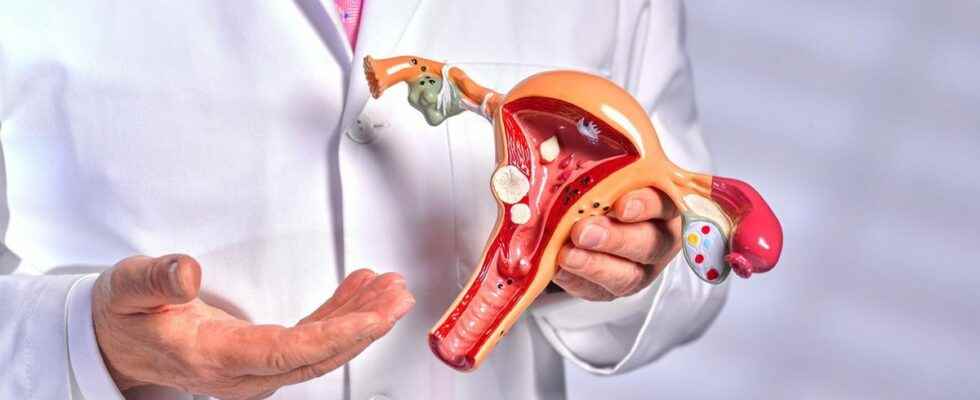Published on
Updated
Reading 2 mins.
in collaboration with
Dr Odile Bagot (Gynecologist-obstetrician)
The vaginal microbiome is still relatively understudied, as animal models differ greatly from humans. A team from Harvard University’s Wyss Institute has developed an organ chip that mimics the microenvironment of human vaginal tissue, so they can better study the impact of germs. The explanations of Dr. Odile Bagot, gynecologist and member of the committee of experts of Doctissimo.
Many pathologies in women are induced by an imbalance of the vaginal flora. Bacterial vaginosis, for example, affects almost 30% of women of childbearing age. Treatable with antibiotics, it can however cause complications that can lead to infertility.
A “vagina chip” to study the microbiome
To better study the vaginal microbiome and even more effectively counter infections in this environment, researchers from the Wyss Institute at Harvard University have developed a vagina chip, which mimics the microenvironment of human vaginal tissues. , including its microbiome in vitro.
Indeed, this chip is composed of human vaginal epithelium and connective tissue cells. Specifically, the research team seeded the upper channel of a polymer chip with human vaginal epithelial cells, then added human uterine fibroblast cells to the opposite side of the membrane. This made it possible to reproduce the structure of the human vaginal wall.
Different tests on this artificial vaginal tissue
The development of this chip allowed scientists to inoculate it with different strains of bacteria to study their effects. By adding several strains of Lactobacillus bacteria, the authors found that in addition to helping maintain an acidic environment, the presence of the bacteria L. crispatus in particular affected the immune responses of the vaginal flea.
Indeed, the fleas produced lower levels of several inflammatory cytokine molecules than the fleas without the bacteria. “This confirms what we know: good bacteria help control inflammation in healthy human vaginas” endorses Dr. Odile Bagot, gynecologist and member of the Doctissimo expert committee.
Similar reactions in vitro than in vivo
When scientists colonized fleas with different species of bacteria associated with bacterial vaginosis like Gardnerella vaginalis or Prevotella bivia and Atopobium vaginaethese three bacteria caused an increase in the pH of the fleas, damaging the vaginal epithelial cells and significantly increasing the production of multiple pro-inflammatory cytokines.
Responses similar to those seen in human patients with bacterial vaginosis. “It was very striking that different microbial species produce such opposite effects on human vaginal cells, and we were able to observe and measure these effects quite easily using our vaginal chip“explained Dr. Abidemi Junaid, researcher at the Wyss Institute and co-author of this work. “The success of these studies demonstrates that this model can be used to test different combinations of microbes to help identify the best probiotic treatments for bacterial vaginosis and other conditions.”.
“A very interesting study” according to Dr. Odile Bagot
“We know that the vaginal microbiome is different according to ethnicity and it is therefore specific to each woman, according to her origins. It is therefore interesting to know which probiotic would be the most suitable for this one. By developing these chips, it also makes it possible to see how the microbiota behaves in the face of such or such bacteria. Finally, it offers the possibility of studying the reactions of the vaginal mucosa according to the inflammation according to the germ present and to determine the really effective probiotics” concludes the gynecologist.
